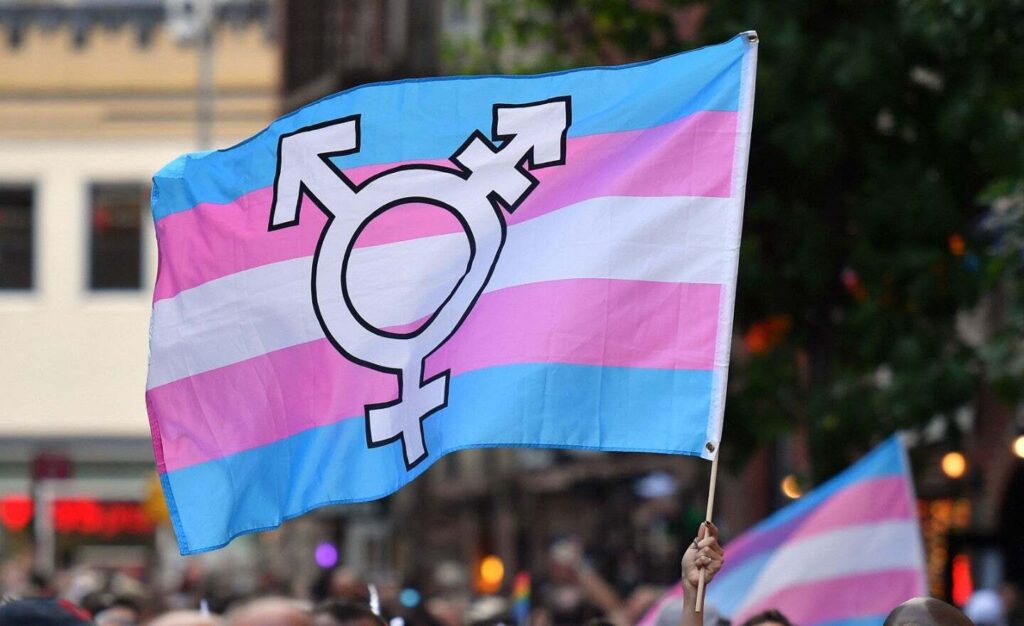On March 31, 2009, the first Transgender Day of Visibility (TDOV) was celebrated across the country. At the time, only Transgender Day of Remembrance (created in 1998 as a response to the brutal murder of Rita Hester) existed. TDOV’s creator, Rachel Crandall-Crocker, wanted the transgender community to have a day where they could “celebrate the living” — and from there, TDOV was born. In 2021, President Joe Biden made history when he issued an official proclamation recognizing March 31 as Transgender Day of Visibility, making him the first U.S. president to do so. He concluded the proclamation affirming that “transgender Americans make our Nation more prosperous, vibrant, and strong” and urged the country to “join us in uplifting the worth and dignity of every transgender person.”
Instead of heeding the president’s impassioned plea, however, far too many anti-LGBTQ bills have been introduced by those hostile to our rights. Last year, a record 315 anti-LGBTQ bills were introduced in state legislatures, the majority of which targeted transgender people. Only three months into 2023, a whopping 435 cruel anti-LGBTQ bills have been introduced across 44 states. An overwhelming majority of these bills attack the rights of transgender people, with particular ire towards transgender youth. The harmful themes of this legislation include restricting transgender youth from playing sports or using bathrooms and locker rooms that align with their gender identity, restricting schools from any mention of the queer community, and criminalizing health care workers for providing crucial, medically necessary gender-affirming health care to youth. Instead of addressing the urgent needs of our country like gun violence prevention, climate change, and inflation, legislators are instead using the power entrusted to them to target the transgender community — egregiously denying basic human dignity in addition to stripping away fundamental rights to privacy, freedom of expression, and speech.
Visibility is part of why representation in all aspects of our government is crucial. One way we have seen change and progress in representation has been in our federal judiciary. One of the accomplishments of the Biden administration has been the confirmation of well-qualified judicial nominees, including the historic confirmation of Justice Ketanji Brown Jackson, our country’s first Black woman and first former public defender to serve as a Supreme Court justice. Other notable achievements include confirming more Black women to our circuit courts than all previous presidents combined, nearly doubling the amount of Native American judges, and increasing the number of judges with a known disability. We celebrate a judiciary whose composition better reflects the community it serves, which begs the question: Where is our country’s first openly transgender or nonbinary federal judge?
Though there is much more work to do, President Biden vastly exceeds any former president in the number of openly LGBTQ+ nominees confirmed at this stage of his presidency, with seven already confirmed. With the advice and consent of the Senate, he has doubled the number of openly LGBTQ+ circuit court judges, including the confirmation of Judge Beth Robinson — our country’s first openly lesbian federal appellate court judge — to the Second Circuit. His nominees have become the first queer judges to ever serve in Colorado, Puerto Rico, and Virginia — which is why the absence of any transgender or nonbinary judicial nominee is so glaring.
Representation matters, especially for communities historically excluded from the federal bench.
Right now, transgender and nonbinary people, particularly our youth, are seeing bills passed and signed into law that seek to eliminate their right to be who they are. They are also seeing lawsuits filed in federal courts around the country in an attempt to halt these bills and, in some cases, to further attack their rights. But there is not one judge they can see on the federal bench who shares their lived experience as a transgender or nonbinary person. Without any transgender or nonbinary representation, the federal courts are completely missing a perspective that is long past due and essential in this moment.
Lack of representation can prevent people, especially youth, from seeing opportunities for themselves. For transgender and nonbinary people, this lack of representation can also lead to the idea that they cannot “come out” and be respected at work. Transgender and nonbinary people already experience high levels of discrimination in employment and many other areas, which further limits their opportunities. In addition to the important perspective transgender and nonbinary judges would bring to the federal bench, they would show others who might wish to seek a judgeship that there are openings for them at some of the highest levels of the legal profession.
While there are only a handful of transgender judges on state and local courts around the country, it has been more than 12 years since the first openly transgender judge took the bench. There is no reason the federal courts should be behind the state of Texas in the number of transgender judges. There are transgender and nonbinary attorneys across the country practicing in all areas of the law and in every type of practice from big firms to tiny nonprofits. And the number of transgender and nonbinary law students is increasing. We need transgender visibility in the courts.
Two years ago, President Biden urged us to help uplift the “worth and dignity of every transgender person.” Today we ask the same of him and our senators.
Kylee Reynolds (she/her) is the policy counsel for the fair courts program at The Leadership Conference on Civil and Human Rights. Ethan Rice (he/him) is the senior attorney for the fair courts project at Lambda Legal.

